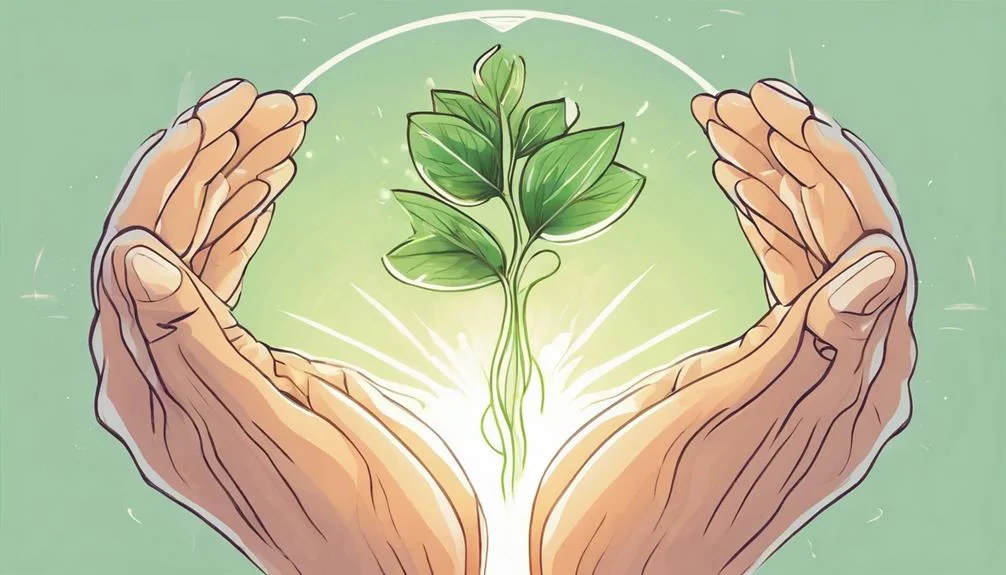Navigating a healthy relationship is key to its success. Key signs include mutual respect, good communication, and trust. These elements are crucial for a strong partnership.
Understanding how to spot these signs in your relationship is important. This introduction will guide you through the signs of a healthy relationship, highlighting why they are essential.
It’s a simple way to check if your relationship is on the right path.
Key Takeaways
- Mutual respect and effective communication are cornerstones of a healthy relationship.
- Trust, honesty, and integrity are non-negotiable for relationship stability.
- Independence and personal growth within a relationship are signs of maturity and balance.
- Successfully resolving conflicts and continuous growth together indicate a strong, enduring partnership.
Mutual Respect

At the core of any healthy relationship lies mutual respect, a fundamental aspect where both partners recognize and value each other’s feelings, thoughts, and needs. This respect manifests in various ways, most distinctly through equal contributions and respectful disagreements. You’ll find that you’re both willing to share responsibilities, be it financially, emotionally, or in daily chores. This balance guarantees that no one feels overburdened or undervalued.
Furthermore, disagreements are inevitable, but it’s how you handle them that matters. In a respectful relationship, you’ll argue but with a desire to understand rather than win. You listen, you don’t belittle, and you aim to reach a compromise. This approach not only strengthens your bond but also deepens your mutual respect.
Effective Communication
Building on the foundation of mutual respect, effective communication stands as another key pillar in maintaining a healthy relationship. It’s all about how you talk and listen to each other. Good listening habits are essential. This means you’re not just hearing words, but you’re actively engaging with what your partner says, showing empathy, and responding thoughtfully. It’s not just about solving problems; it’s about understanding each other’s perspectives.
Verbal affirmations are equally important. They reinforce your appreciation and love, making your partner feel valued. Saying ‘I love you,’ ‘I appreciate you,’ or simply ‘thank you’ can make a huge difference. These expressions of gratitude and affection strengthen your bond, ensuring you both feel heard, understood, and deeply connected.
Trust and Honesty

Trust acts as the backbone of any healthy relationship, ensuring that honesty isn’t just expected but deeply ingrained in every interaction. When you’re steering through the complexities of a partnership, understanding the importance of trust and honesty can’t be overstated.
Here’s how you can foster these essential qualities:
- Implement transparency practices in your daily communication to avoid misunderstandings.
- Appreciate honesty rewards by acknowledging and valuing the truth, even when it’s hard to hear.
- Encourage each other to express feelings and fears without the worry of judgment.
- Regularly check in on your mutual trust levels, making adjustments as needed.
Independence and Space

Maintaining your own space and independence is essential for a healthy relationship to flourish. It’s vital you’ve got your personal hobbies and social circles that aren’t entirely intertwined with your partner’s. This separation allows you both to grow individually, which ultimately strengthens your bond together.
Here’s a quick look at how independence and space can manifest in a relationship:
| Aspect | Importance |
|---|---|
| Personal hobbies | Fosters individual growth |
| Social circles | Expands perspectives |
| Time apart | Enhances appreciation for each other |
| Personal goals | Encourages support and admiration |
| Shared interests | Balances togetherness and autonomy |
Embracing these aspects ensures you both enjoy a fulfilling relationship while maintaining your individuality.
Conflict Resolution Skills

Handling conflicts effectively is essential for the health and longevity of any relationship. It’s not just about avoiding disagreements but how you manage them when they occur. Here’s how you can enhance your conflict resolution skills:
- Listening Techniques: Always give your partner the floor to express their thoughts without interruption. This shows respect and willingness to understand their perspective.
- Clear Communication: Be direct yet kind. Clearly express your feelings without blaming or shaming your partner.
- Apology Acceptance: Learning to accept apologies sincerely is essential. It shows maturity and willingness to move forward.
- Compromise: Finding a middle ground where both parties can agree is key to resolving conflicts amicably.
Emotional Support

After exploring how to navigate conflicts, it’s equally important to focus on providing emotional support to your partner.
Emotional support isn’t just about being there during the tough times; it’s about truly listening actively to what they’re saying without immediately jumping to solutions. It’s about validating their feelings and showing you understand, even if you haven’t experienced what they’re going through yourself. This is where empathy display comes into play.
You don’t have to have all the answers. Sometimes, just being there, offering a shoulder to lean on, and letting them know you’re in their corner can make all the difference. It’s about making your partner feel heard, understood, and valued.
In a healthy relationship, emotional support is a two-way street where both partners feel emotionally secure and supported.
Shared Goals and Values

Why do shared goals and values matter so much in a healthy relationship? It’s simple: they guarantee you’re both heading in the same direction, creating a solid foundation for your partnership. When you share similar aspirations and principles, you’re more likely to:
- Navigate life’s challenges together smoothly.
- Make joint decisions with ease.
- Experience less conflict over big life choices.
- Support each other’s personal growth and success.
Key components like financial alignment and lifestyle compatibility can’t be overlooked. If you’re both on the same page about how you manage money or envision your daily lives, you’re setting yourselves up for fewer disagreements and more harmony. Remember, aligning your goals doesn’t mean losing your individuality; it means strengthening your bond as you grow together.
Quality Time Together
Spending quality time together regularly strengthens the emotional bond between partners, enhancing their connection and intimacy. It’s about creating moments that matter, not just filling the silence. Adventure planning plays an important role in this. Imagine plotting weekend getaways or even a cooking class together. It’s about experiencing new things, stepping out of your comfort zones together. This shared excitement brings a fresh breath of air into your relationship.
Hobby sharing is another gem. You’ve got your interests, and they’ve got theirs, but when you share these passions, you’re opening up new avenues of connection. Whether it’s painting, hiking, or binge-watching a series, these activities become more than just pastimes; they’re threads weaving your lives closer. It’s in these moments you find laughter, support, and a deeper understanding of each other.
Physical Intimacy

Physical intimacy, encompassing everything from holding hands to sexual encounters, plays an important role in deepening the connection between partners. It’s not just about the act itself but the meaning behind it. Affectionate gestures and sensory experiences contribute greatly to a sense of closeness and understanding.
Here are a few signs of healthy physical intimacy in your relationship:
- You’re comfortable initiating and receiving affectionate gestures.
- Sensory experiences are shared and enjoyed together, enhancing your bond.
- Boundaries are respected, ensuring both partners feel safe and valued.
- Communication about desires and comfort levels is open and encouraged.
These aspects highlight how physical closeness can nurture your connection, making it stronger and more resilient.
Continuous Growth

Continuous growth is a cornerstone of any thriving relationship, demanding both partners’ commitment to evolve together. You’ll find that focusing on personal development and seizing learning opportunities not only enhances your individual lives but also strengthens your bond. This journey of growth guarantees that you’re both not just growing older together but also growing wiser and closer.
| Aspect of Growth | Description |
|---|---|
| Personal Development | Encourages each partner to pursue their interests and ambitions. |
| Learning Opportunities | Offers chances to learn from each other and experiences. |
| Emotional Intelligence | Enhances understanding and empathy between partners. |
| Communication Skills | Improves through constant practice and feedback. |
| Shared Goals | Aligning on common objectives fosters teamwork. |
Conclusion
By embracing respect, effective communication, and trust, alongside cherishing shared moments and navigating conflicts wisely, you lay the foundation for a flourishing partnership.
It’s about giving space while also valuing time together, aligning goals, keeping the romance alive, and committing to mutual growth.
If these aspects resonate with your relationship, you’re on a promising path.
What better way to gauge the health of a relationship than by reflecting on these enduring principles?

